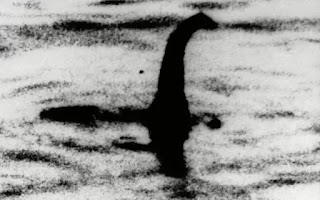AMAZING WORLD
I'm ready to share my experiences with the amazing world with you.join me with today
Sunday, January 13, 2019
Saturday, January 5, 2019
weirdest endangered animals
https://youtu.be/Y0tyHLIUOQg
https://youtu.be/Y0tyHLIUOQg
https://youtu.be/Y0tyHLIUOQg
please watch the video and like, comment, share and subscribe... thank you
Kakapo bird
https://youtu.be/Y0tyHLIUOQg
please watch the video and like, comment, share and subscribe... thank you
Monday, December 24, 2018
Bermuda Triangle and incidents
Bermuda Triangle
part of the North Atlantic Ocean, where a number of aircraft and ships are said to have disappeared under mysterious circumstances. According to the US Navy, the triangle does not exist, and the
name is not recognized by the US Board on Geographic Names. Popular culture has attributed various disappearances to the paranormal or activity by extraterrestrial beings.
name is not recognized by the US Board on Geographic Names. Popular culture has attributed various disappearances to the paranormal or activity by extraterrestrial beings.
Sunday, December 23, 2018
Terrifying aircraft hijacking
Hijacking of Lufthansa Flight 181
1977 Lufthansa Flight 181 was a Boeing 737-230 Adv aircraft named Land shut, hijacked on 13 October 1977 by 4 militants who called themselves Commando Martyr Halime. On 18 October, the aircraft was stormed by the West German counter-terrorism group GSG 9 in Mogadishu, Somalia, and all 86 passengers rescued. The rescue operation was code named Feuerzauber (German term for "Fire Magic").
Saturday, December 22, 2018
terrifying aircraft hijacking
Dawson's Field hijackings
1970 In the Dawson's Field
hijackings (6 September 1970), four jet aircraft bound for New York City and
one for London were hijacked by members of the Popular Front for the Liberation
of Palestine and instead landed at the PFLP's "Revolutionary Airport".
By the end of the incident, one hijacker had been killed and one injury
reported.
Wednesday, December 19, 2018
Greatest Unsolved Mysteries
The Loch Ness Monster
The Loch Ness Monster is a cryptid, a creature whose existence has been suggested but has not been discovered or documented by the scientific community. It is reputedly large unknown animal that inhabits Loch Ness in the Scottish Highlands,
Monday, December 17, 2018
Terrifying Aircraft Hijacking
Egypt Air Flight 648 Hijacking
1985 Egypt Air Flight 648 was a
Boeing 737-200 airliner, registered SU-AYH, hijacked on November 23, 1985 by
the terrorist organization Abu Nidal. The subsequent raid on the aircraftby Egyptian troops resulted in dozens of deaths, making the hijacking of Flight
648 one of the deadliest such incidents in history.
Thursday, December 13, 2018
Weirdest Endangered Animals
Olm
The olm, or proteus (Proteus anguinus), is the only
cavedwelling chordate species found in Europe. In contrast to most amphibians,
it is entirely aquatic, and it eats, sleeps, and breeds underwater.
Friday, December 7, 2018
Weirdest Endangered Animals
Frill-necked lizard
The frilled-neck lizard
(Chlamydosaurus kingii), also
known as the frilled lizard or
frilled dragon, is a type of lizard
that is found mainly in northern
Australia and southern
New Guinea.
(Chlamydosaurus kingii), also
known as the frilled lizard or
frilled dragon, is a type of lizard
that is found mainly in northern
Australia and southern
New Guinea.
Thursday, December 6, 2018
Weirdest Endangered Animals
Pygmy Marmoset
The pygray marmoset
(Cebuella pygmaea; is a smal
New Worid monkey native
to rainforests of the western
Amazon Basin
in South America.
Saturday, October 27, 2018
Weirdest Endangered Animals
Purple Frog
Nasikabatrachus sahyadrensis is a frog species belonging to
the family Sooglossidae. It can be found in the Western Ghats India. NAMES IN English
that have been used for this species are purple frog.
Weirdest Endangered Animals
Duck - Billed Platypus
The platypus is among nature’s most unlikely animals.in
fact, the first scientists to examine a specimen believed they were the victims
of a hoax.
The animal
in best described as a hodgepodge of more familiar species: the duck (bill and
webbed feet), beaver (tail), and otter (body and fur). Males are also venomous.
They have sharp stinger on the heels of their rear feet and can use them to
deliver a strong toxic blow to any foe.
 Platypuses
hunt underwater, where they swim gracefully by paddling with their front webbed
feet and steering with their hind feet and beaver like tail. Folds of skin
cover their eyes and ears to prevent water from entering, and the nostrils close
with a watertight seal. In this posture, a platypus can remain submerged for a
minute or two and employ its sensitives bill to find food
Platypuses
hunt underwater, where they swim gracefully by paddling with their front webbed
feet and steering with their hind feet and beaver like tail. Folds of skin
cover their eyes and ears to prevent water from entering, and the nostrils close
with a watertight seal. In this posture, a platypus can remain submerged for a
minute or two and employ its sensitives bill to find food
These Australian
mammals are bottom feeders. They scoop up insects and larvae, shellfish, and
worms in their bill along with bits of gravel and mud from the bottom. All this
material is stored in cheek pouches and, at the surface, mashed for consumption.
Platy-puses do not have teeth, so the bits of gravel help them to “chew” their
meal.
On land,
platypuses move a bit more awkwardly. However, the webbing on their feet
retracts to expose individual nails and allow the creatures to run. Platypuses use
their nails and feet to construct dirt burrowed at the water’s edge.
Platypuses
reproduction is nearly unique. It is one of only two mammals (the echidna is the
other) that lay eggs.
Females
seal themselves inside one of the burrow’s chambers to lay their eggs. A mother
typically produces one or two eggs and keeps them warm by holding them between
her body and her tail. The eggs hatch n about ten days, but platypus infants
are the size of lima beans and totally helpless. Females nurse their young for
three to four months until the babies can swim on their own
Subscribe to:
Comments (Atom)














